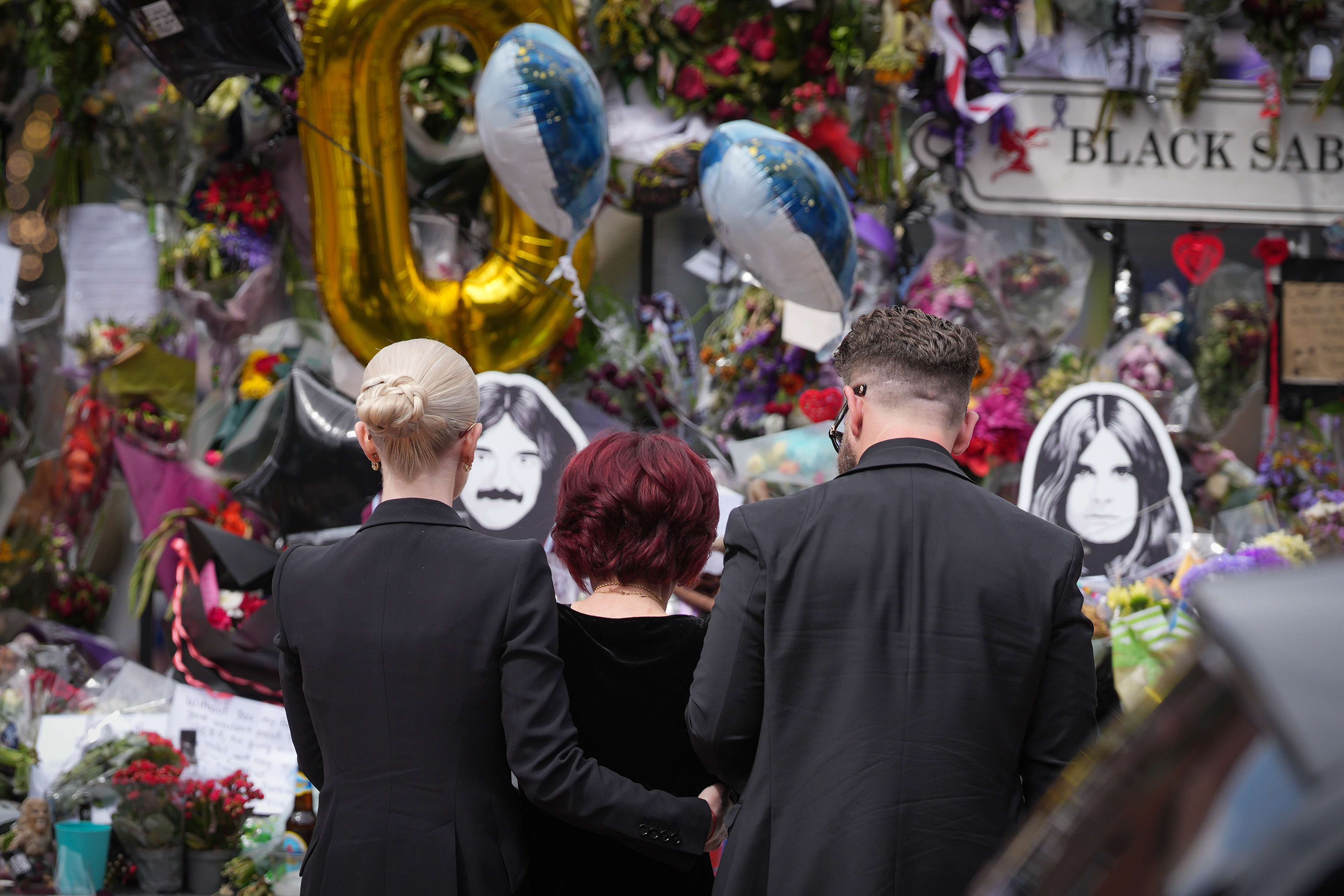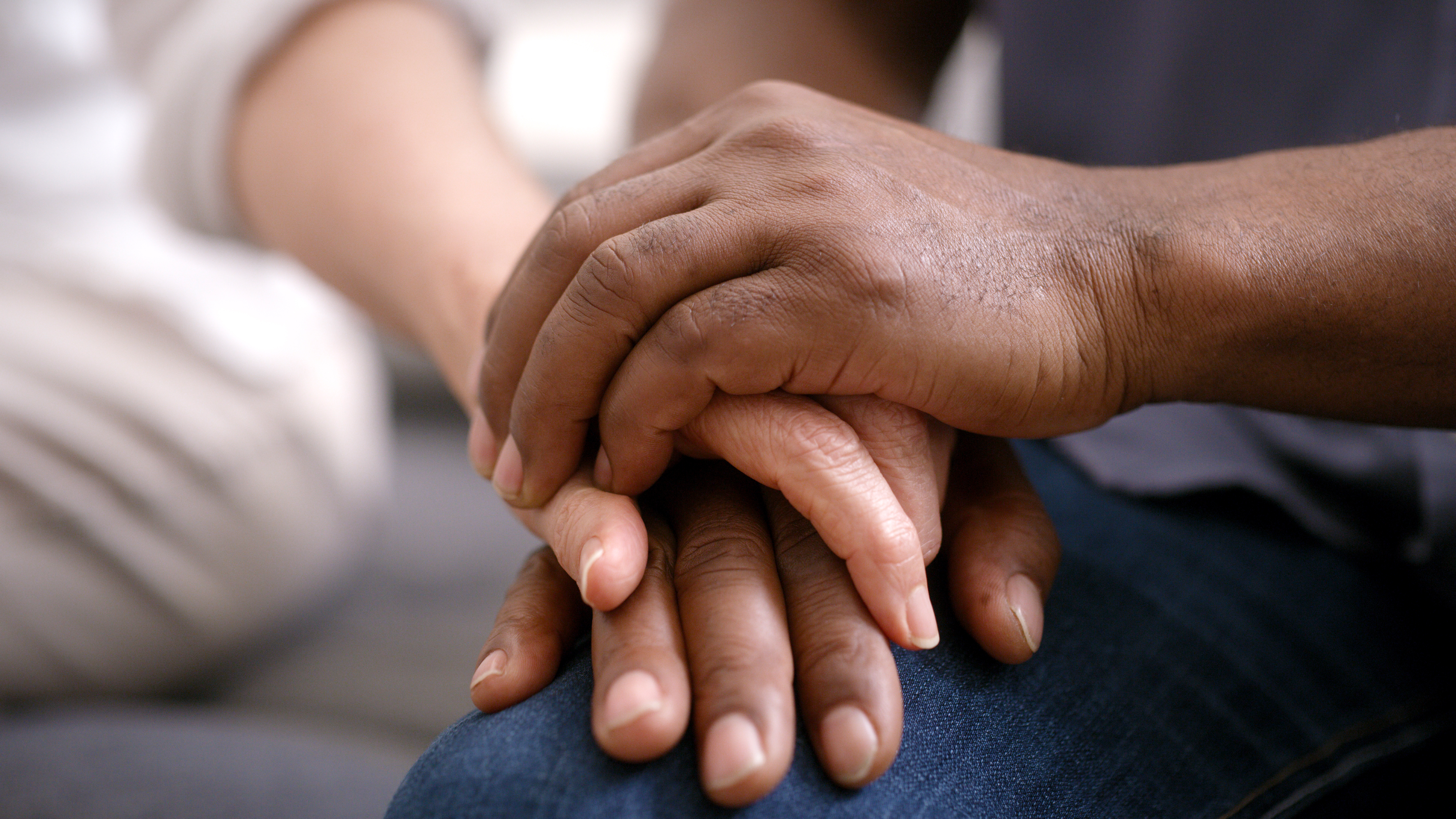As Sharon Osbourne says a final goodbye to Ozzy, we look at ways to support loved ones in mourning
Sharon paid a tearful public tribute to her late husband

Rachael Martin

Sign up to our free daily email for the latest royal and entertainment news, interesting opinion, expert advice on styling and beauty trends, and no-nonsense guides to the health and wellness questions you want answered.
You are now subscribed
Your newsletter sign-up was successful
Want to add more newsletters?

Daily (Mon-Sun)
woman&home Daily
Get all the latest beauty, fashion, home, health and wellbeing advice and trends, plus all the latest celebrity news and more.

Monthly
woman&home Royal Report
Get all the latest news from the Palace, including in-depth analysis, the best in royal fashion, and upcoming events from our royal experts.

Monthly
woman&home Book Club
Foster your love of reading with our all-new online book club, filled with editor picks, author insights and much more.

Monthly
woman&home Cosmic Report
Astrologer Kirsty Gallagher explores key astrological transits and themes, meditations, practices and crystals to help navigate the weeks ahead.
Sharon Osbourne was joined by daughters, Kelly and Aimee, and son Jack as she said a tearful goodbye to her husband, Ozzy, yesterday, after he passed away aged 76 last week.
The death of the iconic musician was met with devastation from rock fans all around the world - and hundreds of fans lined the streets of Ozzy's hometown of Birmingham for an emotional public procession, ahead of a private funeral for the Black Sabbath star.
A tribute to Ozzy saw the public pay their respects as his hearse was driven down Birmingham's Broad Street - while Sharon, Kelly, Aimee, and Jack stepped out to lay flowers and see the tributes left by the crowds.
Dressed in black and appearing to wear Ozzy's wedding ring on a chain around her neck, Sharon's grief and heartbreak were clear to see as she mourned her husband with their son and daughters by her side.

The Osbourne family's very visible grief amid the loss of Ozzy is a reminder that supporting those going through the immense sadness that the loss of a loved one brings is so vital. But sometimes, knowing how can be tricky.
Finding the words and knowing just what to say to be there for someone might feel tough when it's such a sensitive topic - but it might be simpler than you think.
Bereavement experts say it's normal for some to feel reluctant to contact someone grieving for fear of saying the wrong thing - but a friendly voice offering a pillar of support with a few simple words can sometimes be enough.
Sign up to our free daily email for the latest royal and entertainment news, interesting opinion, expert advice on styling and beauty trends, and no-nonsense guides to the health and wellness questions you want answered.
What to say to someone who is grieving
When considering what to say when someone dies, it's important that you're aware of how your words come across and additionally how they can be construed by anyone mourning.
Pam, a volunteer for The Bereavement Trust, told us that while it is quite normal for people to be afraid to contact those who are bereaved - because they don’t know what to say - it is so important remember that a friendly voice gives so much comfort to those who are going through a sad, confusing, lonely and worrying time.

"When someone loses a loved one, they need to talk," Pam explained. "We at the Bereavement Trust think the most important thing is to listen, to be understanding and show empathy.
"Those who have lost someone feel such pain and anxiety and need to know that you care for them and will be there for them, whenever needed. They will feel extreme loneliness and need regular contact from friends and family to help support them.
"Be patient, understanding, and only give advice if asked. Grief takes time to start to heal and may take months or several years."
There are various messages, phrases and ways of wording things that can say just enough, even if you're just writing a condolence card or sending a text message. Things like...
- "I don’t know what to say but I am so sorry to hear this news."
- "I am so sorry for your loss – you are in my thoughts."
- "I’m so sad to hear this and I’m here if you need to talk."
- "He/she was such a wonderful person/so selfless – full of positivity/kindness [whatever feels appropriate] – they will be hugely missed."
- "He/she will be missed so much – they were so special. You are in my thoughts."
- "I am so very sorry to hear this sad news. I cannot imagine how devastated you are."
- "So very shocked and saddened by this sad news. Hard to believe [name] has gone. I am here when you need me."
- "This is so heartbreaking – I wish I could be there to give you a hug."
- "I cannot imagine the hole that she/he will have left. If you need anything, let me know."
Cruse Bereavement Care offered these suggestions as good starting points if you are finding it difficult to know what to say when someone dies. The charity works to offer support, advice and information to children, young people and adults when someone dies.
Andy Langford, Clinical Director at Cruse Bereavement Care, says, "The most important thing is to not worry about saying the wrong thing. Often, there isn’t a “right” thing to say.
"The feeling will come across and it is more important that you say something than that you find the perfect words," he adds.

Caitlin is News Editor for woman&home, covering all things royal, celeb, fashion, beauty and lifestyle. Caitlin started on local papers and titles such as Cosmopolitan, Now, Reveal and Take a Break while studying for her Multimedia Journalism degree. She also worked in Fashion PR as a Press Assistant for Arcadia's Topshop before becoming a part of the Now team. Caitlin went on to add the likes of Woman, GoodtoKnow, WhatToWatch and woman&home to her writing repertoire before moving on to her current role.
- Rachael MartinDigital Editor - Woman & Home
You must confirm your public display name before commenting
Please logout and then login again, you will then be prompted to enter your display name.